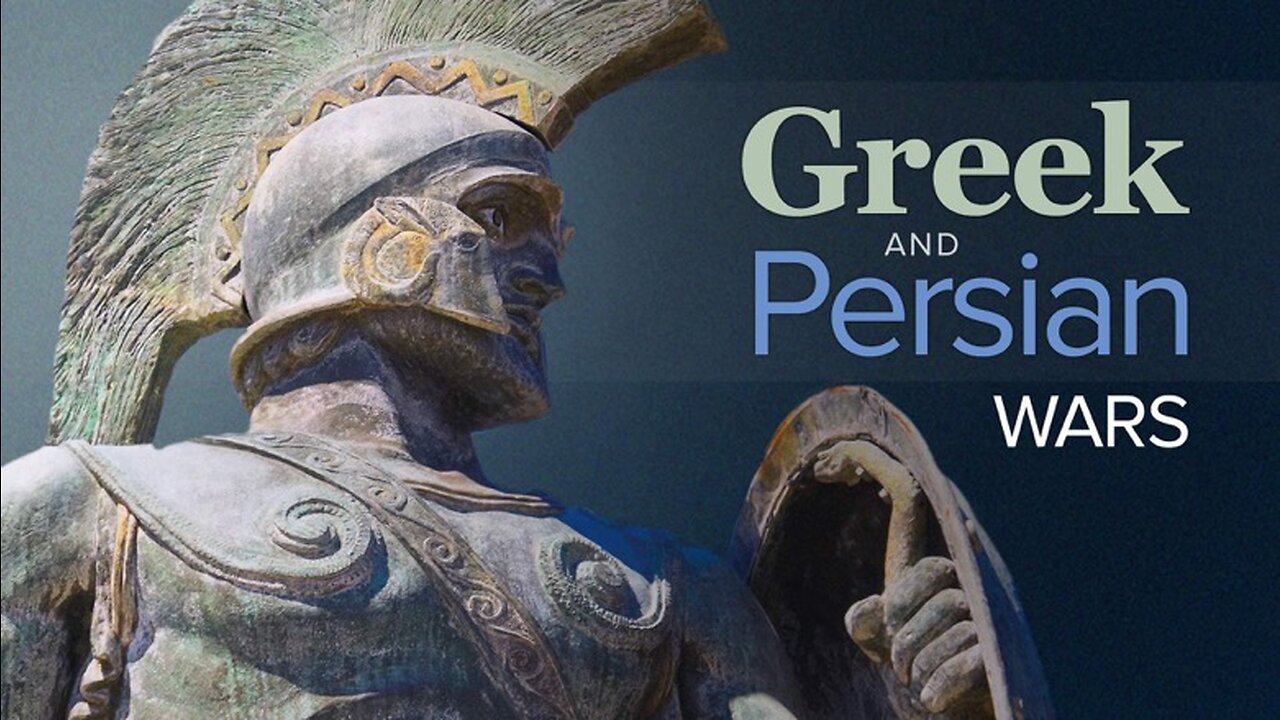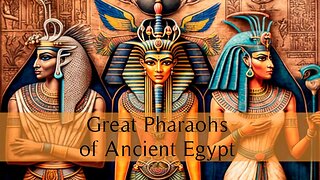Premium Only Content

Greek and Persian Wars | The First Encounter (Lecture 1)
24 lectures, 30 minutes/lecture
Taught by John R. Hale
Ph.D. Professor, University of Louisville
This course presents a rare opportunity to survey the entirety of the two centuries-long conflict between the Greeks and the Persians: the greatest military contest in antiquity and one that forever changed the patterns of human history. Ruled by such Great Kings as Cyrus II (known as Cyrus the Great), Darius III, and Xerxes, the Persian Empire’s extraordinary military might, bottomless treasury, and innovative engineering skills made it seem almost inconceivable that any nation could long resist conquest. Resilient opposition, however, came from the Greek - first from the Ionian cities of Asia Minor, then from the leagues of city-states led by Sparta and Athens, and finally, from the kingdom of Macedon under its fabled rulers King Philip II and his son Alexander III (better known as Alexander the Great). Beginning with the first Persian capture of Greek cities in the mid-6th century B.C. and concluding with the burning of the Persian royal city of Persepolis in 331 B.C., this tumultuous period was punctuated with some of history’s most dramatic battles: the violent clash of soldiers on the plains at Marathon, the defiant last stand of 300 Spartans at Thermopylae, the crucial naval battle in the straits of Salamis, the march of the Ten Thousand under Xenophon, and the astonishing victories of Alexander at Granicus River, Issos, and Gaugamela that finally brought the wars to an end.
Ultimately, this period set the stage not only for the immediate future of the Classical age but for the perpetual collision between East and West; many subsequent clashes—between Rome and Parthia, Christian Crusaders and Muslim Saracens, Byzantines and Ottomans—have been fought along this same fundamental fault line. A comprehensive study of the Greek and Persian wars, one that takes into account a view of the hostilities from both sides and augments the historical narrative with explorations of emergent cultural and political traditions, remains crucial to understanding the complex issues that still beset our modern world.
Lecture 1: The two centuries of hostilities that encompass the Greek and Persian wars saw numerous political, social, economic, and cultural developments. More importantly, however, this archetypal war between East and West prefigured all later conflicts along the cultural fault line running through the eastern Mediterranean. The first encounter between these two disparate civilizations occurred around 546 B.C., with King Croesus of Lydia’s preemptive attack against the emerging Persian Empire and its ruler, King Cyrus II (known as Cyrus the Great). With the aid of Greek hoplite mercenaries from the Peloponnese, Croesus crossed the Halys River and fought the Persians to a standstill, until a lightning-like attack turned the battle in favor of the Persian Empire. The Lydians’ subsequent defeat cemented Cyrus’s role as the new lord of Asia Minor and alerted mainland Greece to the Persian menace. Thus was a spark ignited that would, in the time of Cyrus’s successors, be fanned into a conflagration.
Recommended Reading:
Allen, The Persian Empire.
Herodotus, The Histories.
-
 30:22
30:22
The Great Courses
1 month agoGreat Pharaohs of Ancient Egypt | Sneferu: The Pyramid Builder (Lecture 2)
129 -
 4:32:52
4:32:52
ttvglamourx
4 hours ago $0.61 earnedFINSIHING YEAR 1 ON STARDEW !DISCORD
1.94K -
 LIVE
LIVE
Tommy's Podcast
3 hours agoE828: Vortex
60 watching -
 LIVE
LIVE
BubbaSZN
4 hours ago🔴 LIVE - BEATING DL: THE BEAST & MAYBE SOME SIDE STUFF
32 watching -
 LIVE
LIVE
Major League Fishing
9 days agoLIVE! - Fishing Clash Team Series: Patriot Cup - Day 4
314 watching -
 1:31:04
1:31:04
Rebel News
1 day agoTommy Robinson & Avi Yemini Banned from Al-Aqsa mosque!
3.84K25 -
 LIVE
LIVE
XxXAztecwarrior
1 hour agoPrinting money on Delta
6 watching -
 2:04:59
2:04:59
LFA TV
1 day agoTHE RUMBLE RUNDOWN LIVE @9AM EST
53.8K17 -
 10:02:37
10:02:37
Plan ₿ Forum
1 day agoWAGMI Stage – Lugano Plan ₿ Forum 2025 | Live from Lugano 🇨🇭
520K22 -
 34:37
34:37
vivafrei
5 hours agoLive from Lugano Switzerland, Plan B RECAP with Matt Kohrs! BOOYA!
40.4K11